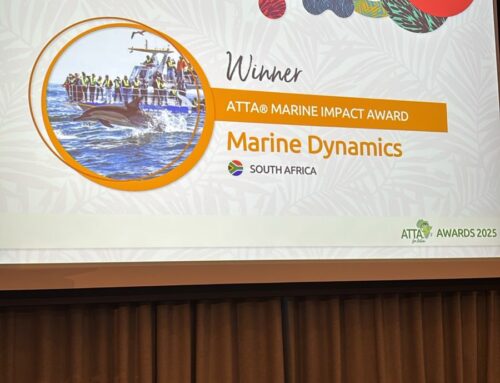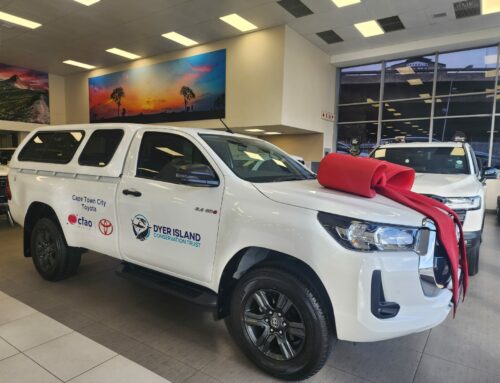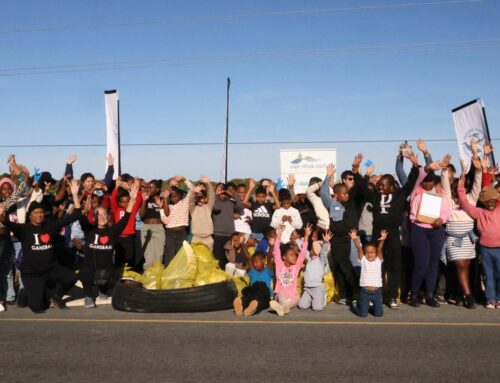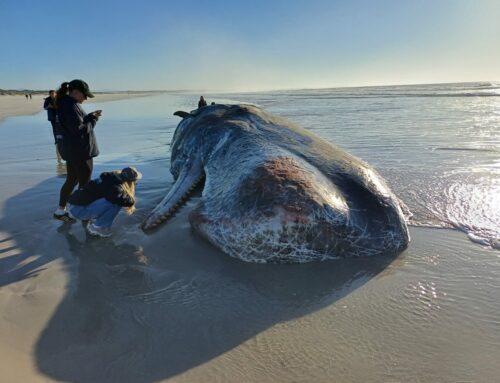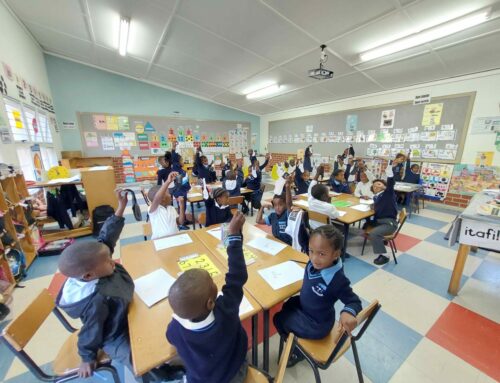Critically Endangered Turtle saved!!!!
September 12, 2014 by dyertrust
On Thursday, 10th September 2014, Mr. Jacques Viviers who is a commercial fisherman in Gansbaai contacted the Dyer Island Conservation Trust about a sea turtle which was floating the Gansbaai harbor, amongst the trawlers.
On arrival, our rescuers Pieter, Kira and Star were shown a medium sized turtle floating close to one of the trawlers. Time was of the essence as the wary creature was slowly drifting towards a gap between the trawlers and the jetty. Kwezi used a hand net to scoop the lethargic creature from the water, and once in hand, it was evident this animal was in a very poor condition.
The choice was made to transport it to the Two Oceans Aquarium as soon as possible. The Two Oceans Aquarium is a partner of the DICT in conservation, and environmental awareness. VW South Africa’s sponsorship of the DICT provides us with the means to rescue and transport these animals in need.
Dennis, from the Two Oceans Aquarium, explained very enthusiastically, This is a Hawksbill Turtle, which is critically endangered, and the 3rd one that has been delivered to the Two Oceans Aquarium in 6 weeks. Before that the last one we saw was in 2006. It is weak, but not as weak as the others that had come in prior to this! Dennis and the team at the TOA were awaiting the results from the veterinarian to ascertain treatments for this poor fellow!
Hawksbill Turtles occurs in both the Pacific and Atlantic oceans adjacent to Africa, but their natural range does not come close to our shores. With three turtles being found in similar conditions along the Western Cape coastline (Yzerfontein, Melkbosstrand, Gansbaai), it is safe to presume that there has been a disturbance in the oceanic current where these creatures spend their lives. They normally dwell on the inside oceanic side of the currents, and with a sudden shift in currents they can be pushed to the outside and soon dwell off of this highway and end up in areas such as ours.
They are specialist feeders, and favors certain sea sponges, but will readily take Cnidarians (Portuguese man o’war) if available as a delicacy. But the fact that these turtles had all been covered in barnacles, seaweed, and black mussels is an indication that they have been floating on the ocean surface for a period of time indicative of a turtle that is ill.
Without the support of people such as Jacques, and our local community, whose first port of call for strandings and marine related animal injuries is the DICT there is very little hope for these creatures. Your choice in letting us know about the many birds, whales, dolphins and other animals has made a difference in conservation as well as the creation of awareness around which species visits our shores.
We hope that this animal will recuperate adequately to be released back into the wild soon maybe he needs a lift back to his current


